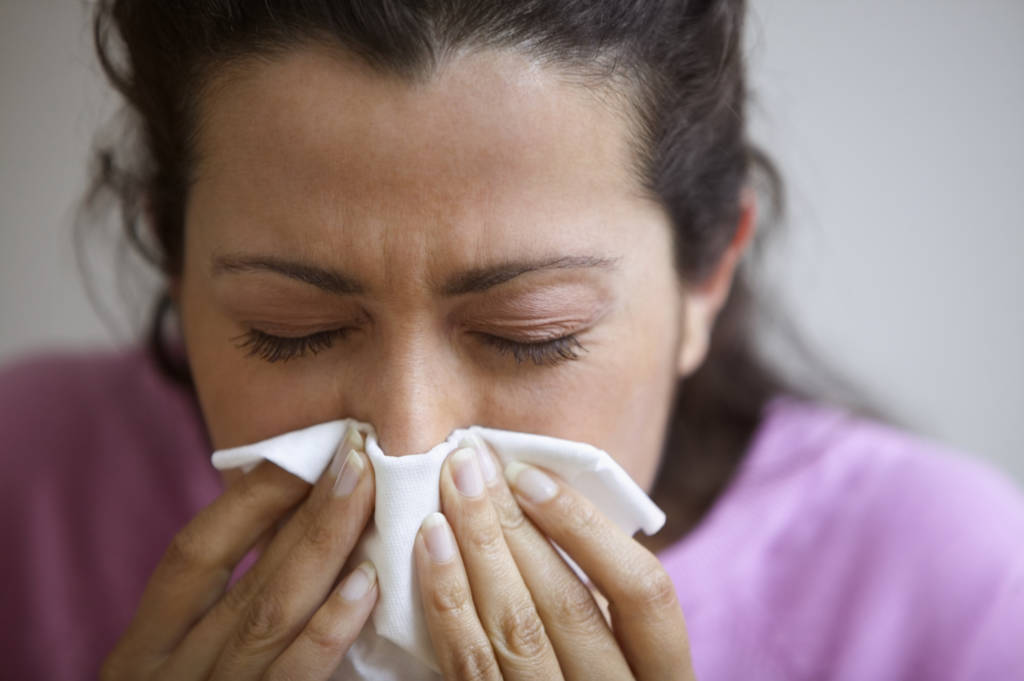
My friend Julie is always full of energy and life, so when she told me on the phone that she was having trouble getting out of bed, I knew something was wrong. I visited her; she had a fever and a horrible cough. I was anxious about her, so I brought her soup, orange juice, and medicine. And then, we went to her doctor’s office.
The old saying, “It takes three days to develop a cold, three days to get it, and three days to go away,” is pretty accurate. So if your cold has lasted more than ten days, it’s time to get help from a doctor, as it may not be cold.
Colds are contagious viral respiratory infections that cause inflammation in the linings of the nose and throat. Because a virus causes them, antibiotics will not help. Common cold symptoms are familiar to everyone: nasal congestion, sneezing, coughing, runny nose, watery eyes, headache, minor muscle aches, tiredness, and sore throat.
Colds are easily spread through the air by the sneezing or coughing of someone already sick. It is not the winter weather that causes colds, but a decrease in your body’s immunity due to stress, overwork, etc.
Cold prevention. Maintaining a robust immune system by controlling stress and living a healthy lifestyle is the medium to long-term answer. Moreover, limit your exposure to the cold virus by washing your hands often, keeping people with colds away, avoiding sharing towels and phones, and try not to touch your face with unwashed hands.
Natural cold treatments. Vitamin C, the most popular choice, does not prevent colds but increases your immune system response and helps shorten their duration. Vitamin A taken in high doses (50,000 IU twice a day) at the first signs of cold also helps.
Zinc lozenges speed recovery and soothes a sore throat. To help a sore throat, try gargling with warm, salty water several times a day and drinking warm liquids, such as tea. A cold is like a mild flu, but a more severe flu affects the entire body, with high fever, chills, headaches, joint and muscle pain, cough, dry or burning eyes, sore throat, and fatigue.
People at higher risk of developing complications with the flu are the elderly, those with chronic illnesses (such as heart or lung disease), and anyone whose immune system is depressed, such as AIDS or chemotherapy patients.





